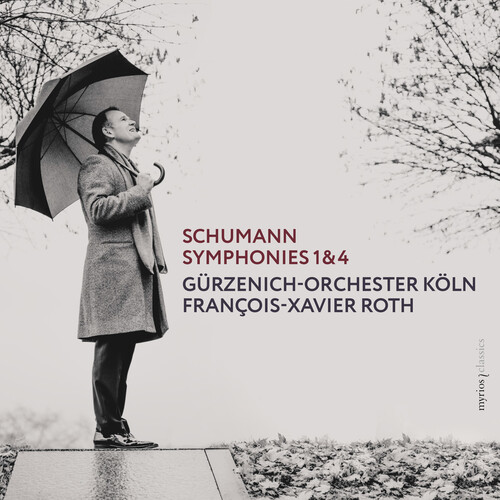Show results for
Deals
- 4K Ultra HD Sale
- 50s Films Sale
- Action Sale
- Alternative Rock Sale
- Anime sale
- Award Winners Sale
- Bear Family Sale
- Blu ray Sale
- Blues on Sale
- British Sale
- Christmas in July
- Classical Music Sale
- Comedy Music Sale
- Comedy Sale
- Country Sale
- Criterion Sale
- Electronic Music sale
- Folk Music Sale
- Horror Sci fi Sale
- Kids and Family Sale
- Metal Sale
- Music Video Sale
- Musicals on Sale
- Mystery Sale
- Naxos Label Sale
- Page to Screen Sale
- Paramount Sale
- Rap and Hip Hop Sale
- Reggae Sale
- Rock
- Rock and Pop Sale
- Rock Legends
- Soul Music Sale
- TV Sale
- Vinyl on Sale
- War Films and Westerns on Sale

Symphonies 1 & 4
- (Hybrid SACD)
- Format: SACD
- Release Date: 9/4/2020

Symphonies 1 & 4
- (Hybrid SACD)
- Format: SACD
- Release Date: 9/4/2020
- Label: Myrios Classics
- UPC: 4260183510284
- Item #: 2308751X
- Genre: Classical
- Release Date: 9/4/2020

Product Notes
The year 1841 finally marked Robert Schumann's breakthrough as a composer for orchestra. That year, he created no less than two works: his First Symphony, also known as the "Spring Symphony", and a piece which he initially planned as a "Symphonic Fantasy" in one movement, and which would later become his Symphony in D Minor. The Spring Symphony was composed in the coldest winter. Full of longing, it is a work that knows only one direction: growing, blossoming, the path to light and new life. The Symphony in D minor seems much more somber and intimate, "a work from the innermost depths of his soul", as Clara Schumann noted in her diary. However, the audience could not warm up to this bold, impetuous work, and Schumann set it aside. Ten years later, after a major revision, he published it as his 4th Symphony. This album pairs the Spring Symphony with the original version of the Symphony in D minor, the version which friends such as Johannes Brahms preferred over the later edition. Schumann never heard it again in his lifetime, and it was not until 1889 that it was performed in public once more, by the Gürzenich Orchestra Cologne under the baton of Franz Wüllner. François-Xavier Roth, the Gürzenich Orchestra's current chief conductor, also prefers the original version. With it's leaner orchestration, it is certainly the more radical one, and thus requires a higher degree of commitment from the orchestra musicians in forming crescendi, melodic phrases, and extended arcs of formal development.

